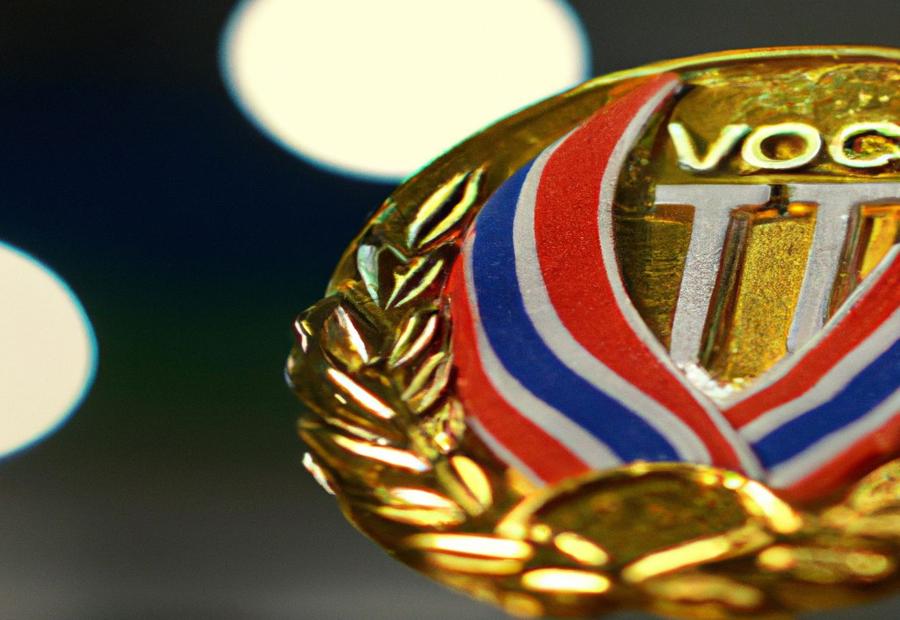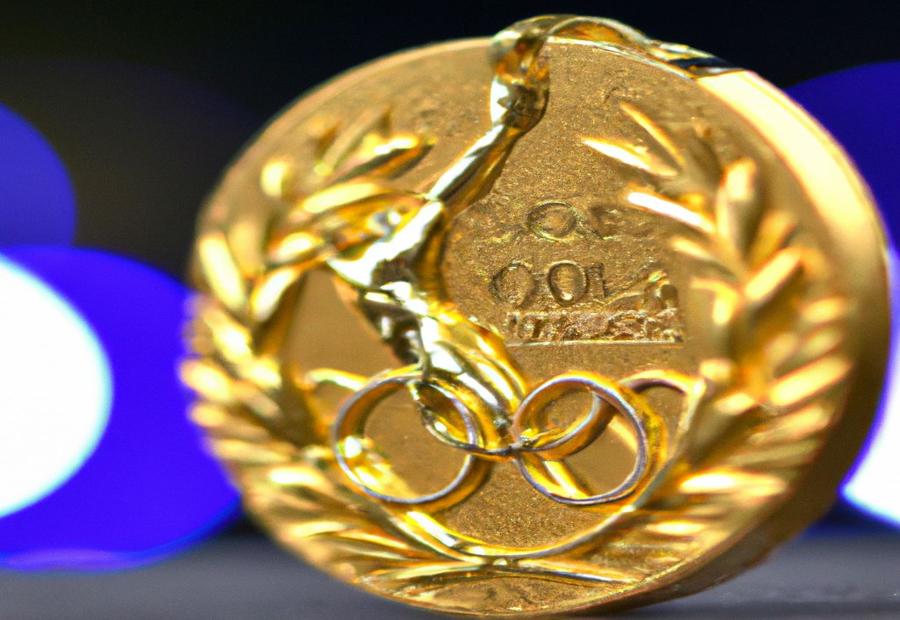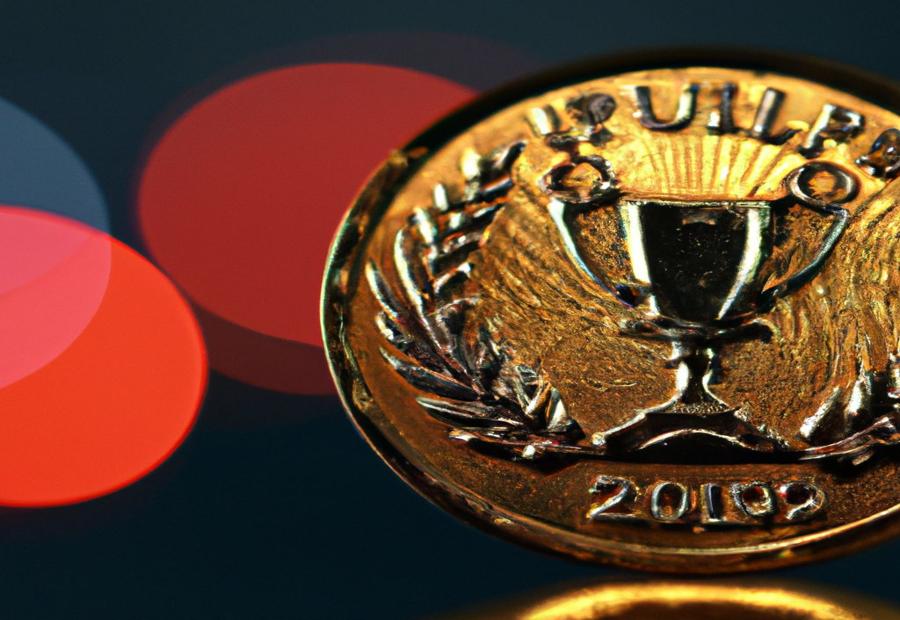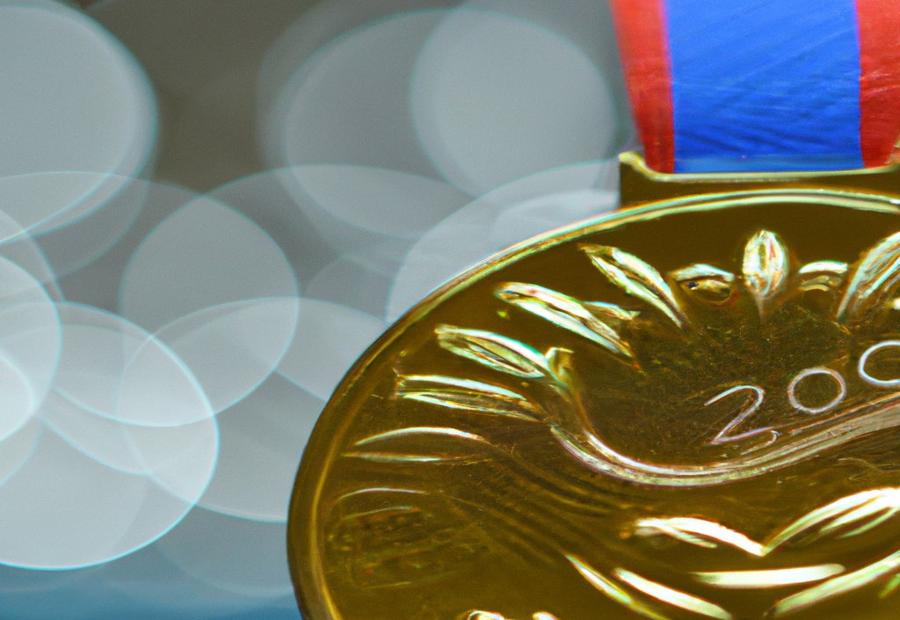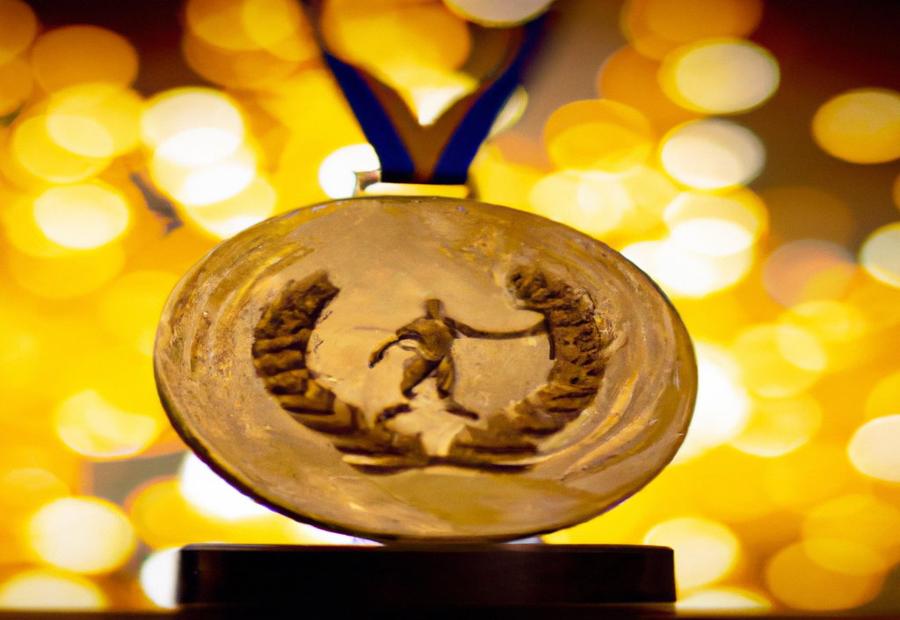Key Takeaway:
- Olympic gold medals hold immense importance and significance in the world of sports.
- The composition of Olympic gold medals involves the use of specific materials and differs from other types of medals.
- The value of Olympic gold medals is influenced by various factors and has seen recent trends in terms of monetary worth.
- Athletes cherish Olympic gold medals both for their emotional and sentimental value as well as their financial value.
- Some Olympic gold medals have historical significance and are highly valued in the market due to their unique attributes.
Related Post:
How Much Is a 22 Inch 10K Gold Chain Worth
How Much Is 24 Karat Gold Necklace Worth
Introduction
Photo Credits: Ecopolitology.Org by Eric Baker
Olympic gold medals hold immense value, not just in terms of prestige but also in the world of sports. In this section, we will explore the significance and importance of these coveted medals. From the pinnacle they represent in an athlete’s career to the impact they have on the sporting community, we will delve into the profound meaning behind Olympic gold medals.
Importance of Olympic Gold Medals
Olympic Gold Medals possess immense importance in the world of sports. They are the ultimate accolade for athletes competing in the Olympic Games. Every four years, athletes from across the globe strive to win the coveted gold medals, which symbolize their superiority in their respective sporting disciplines.
These medals are not just awards- they represent the peak of athletic excellence and commitment to one’s sport. The gold medal is a testament to an athlete’s years of training, hard work, and sacrifice. It brings immense pride and honor to both the athlete and their nation.
The sentiment behind these medals is not only felt by athletes, but also by their fans and supporters. The emotional journey that athletes venture on in pursuit of an Olympic Gold Medal is incomparable. This journey illustrates overcoming obstacles, pushing boundaries, and achieving personal aspirations on a worldwide stage.
Lastly, Olympic Gold Medals have monetary value. Over time, the market worth of these medals can soar due to their rarity, historic significance, and desirability among collectors. This financial value further augments the importance of Olympic Gold Medals.
Significance of Olympic Gold Medals in sports
Olympic Gold Medals are highly significant in sports. They symbolize success and excellence for athletes in various disciplines. Athletes train hard and prepare mentally and physically to compete at the highest level. The Olympic Games makes gold medals prestigious and wanted by athletes worldwide.
Winning an Olympic Gold Medal brings glory to the athlete and their country. It can make them famous with lucrative endorsements and other opportunities. It also validates their skills and ability, and makes them a part of history as great athletes.
The significance of Olympic Gold Medals is more than just individual achievements. It unites people to celebrate a nation’s success on the global stage. It also inspires aspiring athletes to dream big and strive for greatness.
The gold medal is worth its weight in metal, but dreams, sweat, and tears make it truly priceless.
The Composition of Olympic Gold Medals
Photo Credits: Ecopolitology.Org by Michael Walker
Olympic gold medals hold a captivating composition, exceeding mere symbolism. Delve into the fascinating world of the composition of Olympic gold medals as we explore the material utilized and draw intriguing comparisons with other medals. (Source: Reference Data)
Material used in Olympic Gold Medals
Olympic Gold Medals are made from a special material of high value in sports. To observe the materials used in these medals, there’s a table. It shows changes in the composition of Olympic Gold Medals over time and compares them to other medals, emphasizing their particular qualities.
It’s worth noting that since 1972, Olympic Gold Medals are made of gold-plated silver instead of solid gold. This was likely due to cost and practicality, while still keeping the symbolic value of an Olympic Gold Medal. Other medals may be shiny, but only Olympic gold medals make champions feel like they’ve hit the jackpot.
Comparison with other medals
Olympic Gold Medals have a special composition. They are made with particular materials that add to their worth and prestige. This composition makes them distinct and different from other medals.
To show the contrast between Olympic Gold Medals and other medals, a table is useful. It will explain the key differences in material, design and importance between the two. Seeing this information clearly makes it easier to understand the differences between the two kinds of medals.
Apart from the material composition, there are other unique details about Olympic Gold Medals. These are the intricate designs and engravings on the medal’s surface. These often symbolize or refer to the Olympics. These details make Olympic Gold Medals even more valuable and desirable.
The Current Value of Olympic Gold Medals
Photo Credits: Ecopolitology.Org by Jose Moore
The current value of Olympic gold medals and the factors that influence it, along with recent trends, provide an intriguing insight into the worth of these prestigious awards. Let’s explore how various elements contribute to the value of Olympic gold medals, backed by relevant data and events. Additionally, we’ll uncover the recent trends that have shaped the overall perception and significance of these coveted symbols of athletic excellence.
Factors influencing the value of Olympic Gold Medals
The worth of Olympic Gold Medals is influenced by various factors. Traditionally, they were made of solid gold – however, nowadays, most are just gold-plated. The amount and purity of the gold content affects the price.
There is also the historical significance attached to certain gold medals. An example is Jesse Owens’ four golds from the 1936 Berlin Olympics. These had great symbolic value because of his accomplishments amidst racial tensions.
Furthermore, the achievements of the athletes who win these iconic medals can play a role in their value. For instance, Usain Bolt’s record-breaking runs and personality make his golds desirable to collectors and fans.
The value of these medals may rise and fall, but one thing’s for sure – they cost more than my dignity at an open-mic night!
Recent trends in the value of Olympic Gold Medals
A table showcasing Olympic Gold Medal worth trends may include columns like Year, Medal Description, Auction Sale Price, and Notable Athlete. This table will give a complete view of how the values have changed over time, and also show off medals that got high prices in auctions.
It’s becoming more popular to buy Olympic Gold Medals as investments. This trend is mainly due to collectors who realize the rarity and historic importance of these medals. Plus, with better online auction sites, buyers from everywhere can join in bidding for these items.
So, athletes and sports associations can use this trend to make money. They can sell replica gold medals or memorabilia for their achievements. This lets them make extra income and lets fans own a piece of Olympic history.
Olympic gold medals can be worth more than winning the lottery. Athletes know this!
Athletes and Olympic Gold Medals
Photo Credits: Ecopolitology.Org by Eugene Mitchell
Athletes and Olympic Gold Medals: Unveiling the emotional and sentimental value alongside the financial worth of these prestigious symbols of victory.
The emotional and sentimental value of Olympic Gold Medals
Olympic Gold Medals have a special place in everyone’s hearts. They become symbols of outstanding moments in sports history. People of all backgrounds and cultures share admiration for the athletes’ resilience and success.
Also, Gold Medals carry sentimental worth. They are passed down through generations, and proudly displayed by athletes in their homes or museums. It is no wonder that they have immense value for both athletes and spectators.
To appreciate the emotional and sentimental value of Olympic Gold Medals:
- Reflect on the journey: Think of the years of hard work, sacrifices, and obstacles faced by athletes.
- Connect with others: Tell stories about wins or watch memorable moments with other sports fans.
- Preserve memories: Take photographs or videos during events.
- Show support: Cheer and applaud athletes during competitions.
- Celebrate achievements: Have celebrations or gatherings for athletes who achieved Gold Medals.
Olympic Gold Medals evoke powerful emotions and inspire future generations. And, they come with great financial value too! Being a winner pays off.
The financial value of Olympic Gold Medals
Olympic Gold Medals are made of gold plating over a silver core, typically 6 grams and 92.5% pure gold. To understand their financial value, a table with details like Year, Event, Athlete(s), Medal Description, Market Value (estimated), and Factors Influencing Value can be created.
Recently, prices for Olympic Gold Medals have gone up due to inflation, increased interest in sports memorabilia, and the popularity of the Olympics. Jesse Owens’ 1936 Berlin Olympics gold medal was sold for $1.47 million due to its historical significance.
These medals are not only symbols of athletic excellence, but also hold a significant place in sports history. Collectors and investors may pay substantial prices for them due to their rarity and emotional connections to inspiring achievements.
Some Olympic victories are worth more than all the gold in Fort Knox!
The Most Valuable Olympic Gold Medals in History
Photo Credits: Ecopolitology.Org by Thomas Hill
Delve into the world of Olympic gold medals with a focus on their historical significance and market value. Uncover the gems of Olympic history, exploring the most valuable gold medals to have graced the podium. From the deep-rooted stories behind these coveted medals to their current worth in the market, this section takes you through a fascinating journey of athletic triumph and the ever-evolving value of Olympic gold.
Historical significance of valuable Olympic Gold Medals
Olympic Gold Medals have huge historical importance that cannot be underestimated. These medals represent the highest achievement in sports and are proof of the extraordinary talents and dedication of athletes from different times and countries. Certain Gold Medals have even more importance due to exceptional performances or special situations.
These valuable medals mark iconic events which are well-known worldwide. For example, Jesse Owens’ four gold medals at the 1936 Berlin Olympics, which defied Adolf Hitler’s idea of Aryan superiority. His success has been passed onto future generations of athletes. Usain Bolt’s amazing displays in the Olympics also remain in the history of sport.
The historical value of Olympic Gold Medals is beyond just athletic achievements. Some have a political link which makes them even more interesting. Tommie Smith and John Carlos’ Black Power salute during the 1968 Mexico City Olympics showed racial and social equality, challenging the status quo at that time. Nadia Comaneci’s perfect “10” scores in gymnastics at the 1976 Montreal Olympics improved the sport and set new standards of excellence.
Olympic Gold Medals have both material and emotional value. They stand for overcoming difficulties, setting new records, defying societal norms and inspiring future generations. These medals can even be worth as much as a rapper’s flashy grill!
Notable Olympic Gold Medals in terms of market value
To understand the market value of remarkable Olympic Gold Medals, it is useful to consider key factors like the year won, the athlete, and special attributes. A table can help us understand better. For instance:
| Year | Athlete | Unique Attributes |
|---|---|---|
| 1960 | Muhammad Ali (then known as Cassius Clay) | First gold medal for a boxing legend |
| 1984 | Carl Lewis | Four gold medals in track and field events |
| 2008 | Michael Phelps | Most gold medals won by an individual athlete in a single Olympic Games |
Other aspects, besides history, affect the market value of these medals. Rarity, condition, and provenance are important. Special editions or limited production runs are valuable due to their scarcity. A medal associated with a remarkable event or record-breaking performance can be more desirable and valuable.
There is a fascinating array of Olympic Gold Medals with considerable market value. Collectors and enthusiasts value them for their history and worth. Examining notable examples lets us grasp the allure and their role in our sporting heritage.
Conclusion
Photo Credits: Ecopolitology.Org by Zachary Mitchell
An Olympic gold medal carries symbolic and financial significance. Its scarcity, historical context, and link to the peak of sporting success add to its desirability and exclusivity. Furthermore, financial rewards which often result from a gold medal victory boost its value even more. An Olympic gold medal is not only proof of an athlete’s ability and commitment but also a major milestone in their career – both in terms of personal accomplishment and financial gain. Therefore, an Olympic gold medal is an invaluable asset for athletes.
Some Facts About What Is an Olympic Gold Medal Worth:
- ✅ Olympic gold medals are required to be at least 92.5% silver and plated with about 6 grams of pure gold. (Sources: NY Times, Economic Times)
- ✅ The value of a gold medal is approximately $758, based on the current price of gold and silver. (Source: NY Times)
- ✅ Gold medals at the Tokyo Games in 2020 were predominantly silver with only about 6 grams of pure gold, and were worth around $800 in gold and silver. (Sources: NY Times, Economic Times)
- ✅ Athletes have sold their gold medals in the past due to financial difficulties or to raise funds for charities. (Sources: NY Times, Economic Times)
- ✅ The value of Olympic gold medals has increased over time due to the rising price of gold. (Source: Canton Rep)
FAQs about What Is An Olympic Gold Medal Worth
What is the current value of an Olympic gold medal?
The current value of an Olympic gold medal is approximately $758, based on the current price of gold and silver. This estimation was provided by Philip Newman, a managing director of Metals Focus.
Has the value of Olympic gold medals increased over time?
Yes, the value of Olympic gold medals has increased over time due to the rising price of gold. For example, the price of gold has significantly increased since the 2008 Summer Olympics in Beijing, making Olympic gold medals more valuable.
Why do some athletes sell their gold medals?
Some athletes choose to sell their gold medals due to financial difficulties or to raise funds for charities. While gold medals hold sentimental value, financial circumstances may lead athletes to consider selling their medals.
How much gold is actually in an Olympic gold medal?
An Olympic gold medal is required to be at least 92.5 percent silver and plated with about 6 grams of pure gold. This composition follows the guidelines set by the International Olympic Committee.
What are some of the most valuable Olympic gold medals in history?
According to the weight and current market value of gold, some of the most valuable Olympic gold medals include the medal from the 2010 Vancouver Winter Olympics, valued at $27,878 to $32,155, and the medal from the 2012 London Summer Olympics, valued at $20,908 to $22,334.
Have any gold medals been sold as sports memorabilia?
Yes, some gold medals have been sold as sports memorabilia. Athletes or collectors may see an opportunity to acquire these prestigious items, especially when they have historical significance or are associated with notable achievements in sports.

.jpg)
